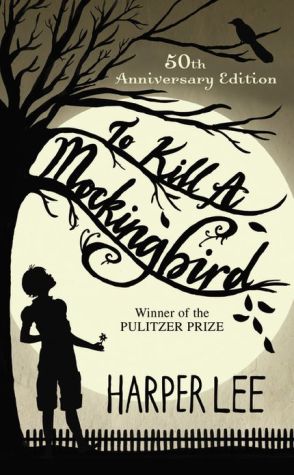Anna of Byzantium
Anna Comnena has every reason to feel entitled. She's a princess, her father's firstborn and his chosen successor. Someday she expects to sit on the throne and rule the vast Byzantine Empire. So the birth of a baby brother doesn't perturb her. Nor do the "barbarians" from foreign lands, who think only a son should ascend to power. Anna is as dismissive of them as are her father and his most trusted adviser—his mother, a manipulative woman with whom Anna studies the art of diplomacy. Anna...
Search in google:
Anna Comnena has every reason to feel entitled. She's a princess, her father's firstborn and his chosen successor. Someday she expects to sit on the throne and rule the vast Byzantine Empire. So the birth of a baby brother doesn't perturb her. Nor do the "barbarians" from foreign lands, who think only a son should ascend to power. Anna is as dismissive of them as are her father and his most trusted adviser--his mother, a manipulative woman with whom Anna studies the art of diplomacy. Anna relishes her lessons, proving adept at checkmating opponents in swift moves of mental chess. But as she matures into a young woman, her arrogance and intelligence threaten her grandmother. Anna will be no one's puppet. Almost overnight, Anna sees her dreams of power wrenched from her and bestowed on her little brother. Bitter at the betrayal, Anna waits to avenge herself, and to seize what is rightfully hers.Ilene CooperIn the tradition of E.L. Konigsburg's A Proud Taste for Scarlet and Miniver (1973) and Karen Cushman's Catherine, Called Birdy (1994) comes this story of a real-life historical figure, Anna Comnena, groomed to be the sovereign of the Byzantine empire. But events intervene, and the birth of a baby brother is just as bad as the invasion of barbarians. Barrett uses an effective first-person narrative to draw readers into Anna's story, and the author's precise use of detail helps re-create Anna's world, the palace of Constantinople in the ninth century. The story is told in flashback; Anna has already been exiled to a convent by her brother for trying to overthrow him. Readers will be caught up in Anna's evolution as she moves from loving child and heir of the emperor to pawn in her grandmother's plan to continue as the power behind the throne to discarded princess, stripped of all she holds dear, especially her future. The author's note at the end is informative, but it also raises several questions, including why Anna's brother, depicted as nasty and spiteful in the book, became one of the empire's most beloved emperors. The Byzantine empire is often neglected in studies of the Middle Ages. This exciting read--with a particularly enticing cover--will help change that oversight. -- Booklist
\ Ilene CooperIn the tradition of E.L. Konigsburg's A Proud Taste for Scarlet and Miniver (1973) and Karen Cushman's Catherine, Called Birdy (1994) comes this story of a real-life historical figure, Anna Comnena, groomed to be the sovereign of the Byzantine empire. But events intervene, and the birth of a baby brother is just as bad as the invasion of barbarians. Barrett uses an effective first-person narrative to draw readers into Anna's story, and the author's precise use of detail helps re-create Anna's world, the palace of Constantinople in the ninth century. The story is told in flashback; Anna has already been exiled to a convent by her brother for trying to overthrow him. Readers will be caught up in Anna's evolution as she moves from loving child and heir of the emperor to pawn in her grandmother's plan to continue as the power behind the throne to discarded princess, stripped of all she holds dear, especially her future. The author's note at the end is informative, but it also raises several questions, including why Anna's brother, depicted as nasty and spiteful in the book, became one of the empire's most beloved emperors. The Byzantine empire is often neglected in studies of the Middle Ages. This exciting read--with a particularly enticing cover--will help change that oversight. -- Booklist\ \ \ \ \ Publishers Weekly\ - Publisher's Weekly\ This uneven first novel is narrated by Anna, the first-born daughter of the Emperor of Byzantium, poised to inherit the throne. Inspired by the real Anna Comnena (1083-1153) who chronicled her father's reign in The Alexiad, the story begins in a convent, where 17-year-old Anna lives in exile. Most of the book flashes back to the princess's upbringing and her attempt on her brother John's life that led to her monastic imprisonment. Although the author successfully evokes an aura of claustrophobia within the castle and convent, she provides few details to distinguish one setting from another. The scenes in the throne room involving visiting dignitaries or soldiers do little to illustrate the pageantry or politics of the age, and the main characters lack definition--with the exception of the Machiavellian grandmother. Anna herself, with her education in history, classics and science, may reverse any preconceived assumptions about the ignorance and lowly position of women in the Middle Ages, but her character as portrayed here is not likable until the book's conclusion. Readers may not stay around long enough to witness her humbling fall from power and transition to scholar. Ages 10-up. (June) Copyright 1999 Cahners Business Information.\ \ \ Children's Literature"I had never seen the dungeons before but they were as I had always pictured them...I supposed my mother was somewhere in the dungeon too, for whoever had betrayed me must have known she was involved as well." Step back in time to the 11th century and view the Byzantine Empire through the eyes of Anna Comnena. Anna is born into a royal family of the Byzantine Empire. Being successor to the throne brings many duties and responsibilities to young Anna, including being educated. Anna is groomed for the role as princess by her grandmother and Simon, her tutor. However, as Anna grows into womanhood, her younger brother John and her grandmother lose patience with Anna's newfound spirit. In an unbelievable set of circumstances, Anna's idyllic world takes a dramatic turn. As Anna waits for the opportunity to avenge herself, her world takes yet another dramatic turn. Barrett successfully transports the reader to another time in history and holds the reader with a tale of history, mystery and intrigue. 1999, Dell Laurel-Leaf, $4.50. Ages 10 to 14. Reviewer: Rita Karr\ \ \ \ \ KLIATTTo quote from the hardcover review in KLIATT, July 1999: Barrett teaches at Vanderbilt University and is interested in women in the Middle Ages who were writers: thus, her interest in Anna Comnena. For this novel, she has taken some basic facts, compressed some of the action for dramatic effect, and created a portrait of this Byzantine princess who was so well educated and such a talented writer. "Byzantine" has come to mean, in our English vocabulary, a description of something that is intricate, complicated, devious, and full of intrigue. (I take that from Funk & Wagnall's Dictionary.) That works for a description of Anna's life as well: she was a pawn in an intrigue between her grandmother and her mother. She had been promised to be the next Empress, but as a teenager, this was taken away from her; instead, her younger brother became the Emperor when her father died. This intrigue is the basis of this novel. The action begins as a seventeen-year-old Anna is exiled to a distant nunnery, put there as punishment when the plot to murder her brother fails. Can we like such a heroine? Barrett produces a character study of an intelligent, selfish, vengeful girl—taught to seek and hold power from an early age. The reader will be somewhat awed by this princess, who lives in a most exotic place and time, and only toward the end of the story will the reader be able to see Anna in a sympathetic light. In fact, Anna's life was a full one. After the abortive assassination attempt she married another historian, had four children, wrote her famous history of her father, and died at the age of 70. Certainly Anna Comnena is an important part of the history of women. (Editor's note:This book is an ALA Best Book for YAs.) KLIATT Codes: JS*—Exceptional book, recommended for junior and senior high school students. 1999, Dell/Laurel-Leaf, 209p, map, 18cm, $4.50. Ages 13 to 18. Reviewer: Claire Rosser; November 2000 (Vol. 34 No. 6)\ \ \ \ \ School Library JournalGr 6-10-The 11th-century Byzantine princess Anna Comnena was a remarkable woman. Designated as a child to inherit the throne, she was educated to be a ruler. She learned, from her mother and grandmother, to manipulate the intrigues and factions of the court, and when she was displaced as heir by her brother, she schemed, without success, to assassinate him and regain her position. In this novel, Anna tells her own story, looking back on her former life from the convent to which she has been banished. The first-person device serves well to focus the action on the princess and to build a plausible character study of a brilliant and tempestuous young woman frustrated and embittered by the loss of her expectations of achieving supreme power. However, the book exemplifies the difficulty of writing a historical novel about a real person. Anna's brother is depicted throughout as a spoiled monster who (in contrast to the brilliant Anna) refuses to learn to read. Yet historians characterize John's rule as one of personal virtue and administrative competence and tell that he forgave his sister for her many conspiracies against him. Barrett acknowledges in an afterword that she "changed some of the facts," but, unfortunately, it is the story she spins that will remain with young readers. Still, few books, with the notable exception of Peter Dickinson's The Dancing Bear (Little, Brown, 1972; o.p.), have as their backdrop the colorful and historically significant Byzantine Empire.-Shirley Wilton, Ocean County College, Toms River, NJ Copyright 1999 Cahners Business Information.\ \ \ \ \ Kirkus ReviewsLoosely based on the early life of Anna Comnena, a Byzantine princess and scholar born in the 11th century, this debut succeeds neither in creating coherent character portraits, nor in illuminating its epoch. Designated successor to the throne, Anna has grown up in a cloistered court dominated by the rivalry between her gentle mother and crafty, unscrupulous grandmother. Jealous, ambitious, proud of her aptitude for study, Anna is an unappealing narrator who, despite years of her grandmother's tutelage in statecraft, is outclassed in intrigue at every turn by her spiteful, sneaky younger brother, John; ultimately, through her own naïveté, she loses her right to succeed her father, then compounds the disaster with an unsuccessful attempt to assassinate John. Off she is sent, to spend the rest of her life in a remote convent. Barrett supplies too light a dusting of detail to give her picture of the court of Byzantium much flavor, and larger events (Anna is remembered chiefly today for her account of her father's reign and the First Crusade) take place offstage. Furthermore, characters act in arbitrary ways, so that when Anna performs a selflessly kind act, it comes out of nowhere, as does John's sudden transformation, when he takes the throne, from malicious brat to the most benevolent and beloved of all the Byzantine emperors. Anna Comnena makes a promising protagonist, but in historical and emotional depth this falls short of other medieval tales, such as Nancy Garden's Dove And Sword (1995). (Fiction. 11-13)\ \








